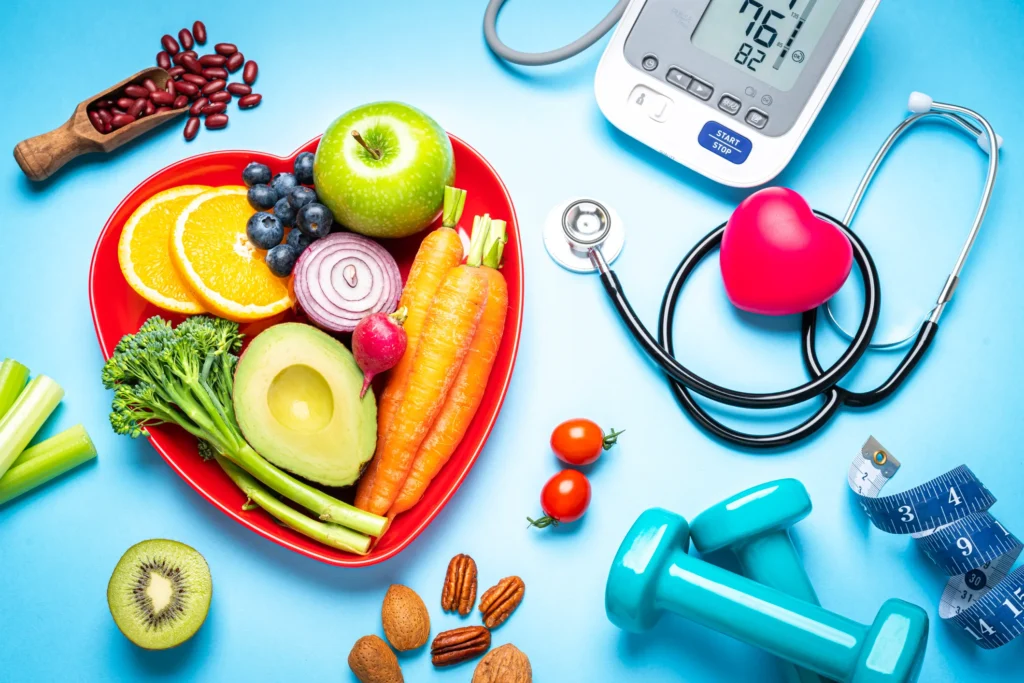Health Care
7 Surprising Ways to Lower Cholesterol Naturally – No Medication Needed
How To Lower Cholesterol Without Drugs
Cholesterol, a waxy substance found in your blood, is vital for building healthy cells, but excessive levels can lead to various health issues, particularly cardiovascular diseases. While medication is often prescribed to manage high cholesterol levels, there are several surprising and effective ways to naturally lower cholesterol without relying on drugs. Let’s delve into these unconventional methods that can help you improve your heart health and overall well-being.
1. Embrace Healthy Fats
Contrary to popular belief, not all fats are bad for your health. In fact, incorporating healthy fats into your diet can actually help lower cholesterol levels. Foods rich in monounsaturated and polyunsaturated fats, such as avocados, nuts, seeds, and olive oil, can help raise HDL (good) cholesterol while lowering LDL (bad) cholesterol. These fats also provide essential nutrients and support overall heart health.
Example:
Instead of reaching for processed snacks, opt for a handful of almonds as a nutritious snack. Almonds are packed with monounsaturated fats, fiber, and antioxidants, making them an excellent choice for promoting heart health.
2. Increase Soluble Fiber Intake
Soluble fiber acts like a sponge in your digestive system, soaking up cholesterol and carrying it out of your body. By increasing your intake of foods high in soluble fiber, such as oats, beans, lentils, fruits, and vegetables, you can effectively lower LDL cholesterol levels and improve your overall cholesterol profile.
Example:
Start your day with a hearty bowl of oatmeal topped with fresh berries for a delicious and fiber-rich breakfast that can help lower cholesterol levels.
3. Get Moving with Exercise
Regular physical activity is not only beneficial for maintaining a healthy weight and boosting mood but also plays a significant role in managing cholesterol levels. Engaging in aerobic exercises such as walking, jogging, swimming, or cycling for at least 30 minutes most days of the week can help raise HDL cholesterol and lower LDL cholesterol.
Example:
Join a local dance class or take up a new sport with friends to make exercise fun and enjoyable while reaping the benefits of improved heart health.
4. Enjoy the Power of Plant Sterols
Plant sterols, naturally occurring compounds found in plant-based foods such as fruits, vegetables, nuts, and seeds, have been shown to block the absorption of cholesterol in the intestines. Including foods fortified with plant sterols or stanols, such as certain margarines and orange juice, can help lower LDL cholesterol levels when consumed as part of a healthy diet.
Example:
Swap your regular butter for a plant sterol-enriched spread to easily incorporate this cholesterol-lowering ingredient into your daily routine.
5. Savor Dark Chocolate
Yes, you read that right – dark chocolate can be beneficial for your heart health when consumed in moderation. Dark chocolate contains flavonoids, powerful antioxidants that have been shown to improve heart health by increasing HDL cholesterol and lowering LDL cholesterol levels.
Example:
Indulge in a square or two of dark chocolate as a guilt-free treat to satisfy your sweet cravings while supporting your heart health.

6. Practice Mindful Eating
Mindful eating involves paying attention to the sensations and emotions associated with eating, such as hunger, fullness, and satisfaction. By slowing down and savoring each bite, you can become more attuned to your body’s hunger and satiety signals, which can help prevent overeating and promote healthier food choices.
Example:
Before reaching for seconds, pause and ask yourself if you’re truly hungry or just eating out of habit. Mindful eating can help you make more mindful choices and prevent mindless snacking.
7. Manage Stress Levels
Chronic stress can contribute to high cholesterol levels and increase the risk of heart disease. Finding healthy ways to manage stress, such as practicing yoga, meditation, deep breathing exercises, or spending time in nature, can help lower cortisol levels and promote heart health.
Example:
Take a break from your hectic schedule and spend some time outdoors, soaking up the sunshine and fresh air. Even a short walk in nature can do wonders for reducing stress and improving overall well-being.
By incorporating these surprising yet effective strategies into your lifestyle, you can take control of your cholesterol levels and support your heart health naturally, without the need for medication.
FAQs (Frequently Asked Questions)
Q1: Can genetics influence cholesterol levels?
A1: Yes, genetics can play a significant role in determining cholesterol levels. Some individuals may have a genetic predisposition to high cholesterol, making it essential to monitor cholesterol levels regularly and make necessary lifestyle changes to manage it effectively.
Q2: How long does it take to see results from lifestyle changes in lowering cholesterol?
A2: The timeline for seeing results from lifestyle changes can vary depending on factors such as diet, exercise, genetics, and overall health. However, making healthy lifestyle changes, including dietary modifications and regular exercise, can lead to improvements in cholesterol levels within a few weeks to a few months.
Q3: Is it necessary to completely avoid all foods high in cholesterol?
A3: While it’s important to limit foods high in cholesterol, such as fried foods, processed meats, and full-fat dairy products, it’s not necessary to completely eliminate them from your diet. Instead, focus on moderation and balance, incorporating a variety of nutrient-rich foods to support overall heart health.
www.binance.com-а тркелу
April 15, 2024 at 4:52 pm
Thanks for sharing. I read many of your blog posts, cool, your blog is very good.
eonline360
April 16, 2024 at 8:10 am
thankyou for your response